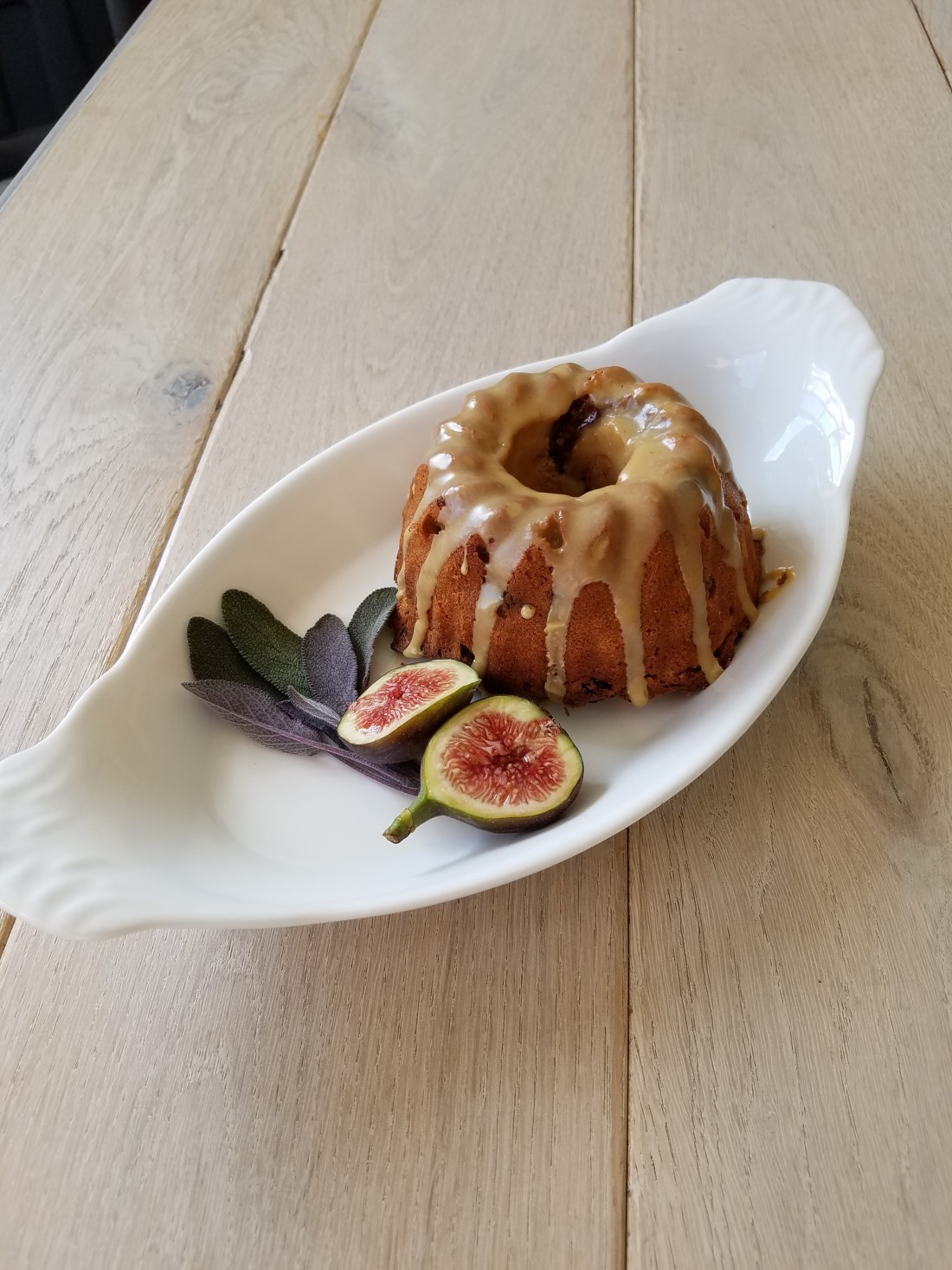Susannah Gebhart, owner of OWL Bakery in West Asheville, hopes to add a little sweetness to an otherwise bitter election cycle. She’s doing this in the form of election cakes, a tradition that dates to Colonial America. Originally known as muster cake, these naturally leavened desserts began as a dish served whenever the British military came through to train local militias.
“The women in the community would bake these sourdough leavens — fruit cakes, essentially — that would feed the soldiers, the trainees and people who came out to watch the training rituals,” says Gebhart.
Following the Revolutionary War, these same offerings were served at town hall meetings and during the election process to encourage informed citizens to vote. “The cake symbolized the electoral process,” Gebhart says.
Through the Tuesday, Nov. 8, election, OWL, along with 13 other bakeries across the country, will sell their own versions of the election cake. Dubbed “Make America Cake Again,” the nonpartisan nationwide project aims to raise awareness about culinary heritage and the place of food in political and social life. Gebhart is donating 20 percent of each purchase to the League of Women Voters of Asheville-Buncombe County as a way to support the organization’s ongoing efforts to educate about and advocate for voting rights.
The idea came about earlier this summer while Gebhart attended a baking summit in Providence, R.I., where she met Richard Miscovich, associate professor and department chair for the College of Culinary Arts at Johnson & Wales University. He was also familiar with the muster cake. The two fell into conversation about its role in early America along with San Francisco-based baker William Warner. Within a few minutes, the three were “geeking out about this random baked good,” remembers Gebhart.
The geek session continued once she returned to Asheville. Gebhart’s business partner and fellow OWL baker, Maia Surdam, holds a PhD in U.S. history. Talk of the election cake led Surdam to research the topic.
“My area of expertise is women’s history,” she says. “So this training led me to ask questions about gender dynamics. Who was baking these cakes, and who was eating them? What do these cakes suggest about women’s role in political culture at a time when they couldn’t vote? We know that it was mostly women who baked in the Colonial Era, and that it was only elite white men who did the voting during that time.
“It’s interesting to think about that complicated gendered history,” Surdam continues, “and then compare it to our project today, which began at OWL Bakery, a female-owned business that is raising money for the League of Women Voters in an election when we have a woman running for president. Clearly, some gender dynamics have shifted over time.”
OWL’s election cake includes whole wheat flour from Carolina Ground and local apples that have been dehydrated then rehydrated with bourbon. Sorghum serves as the sweetener. “We’re trying to use ingredients grown as close to home as possible to create a regional interpretation,” Gebhart says.
Recipes for the cakes will be available on OWL’s website. Gebhart says the recipes are adaptations based on the formulas developed by Miscovich through his research of primary sources. She notes that some of the original instructions called for 20 pounds of flour, 80 eggs and 14 quarts of butter. “They were clearly intended to feed the masses,” she says. “These cakes would have been gigantic.” In addition to paring down its size, these reinterpreted recipes include a yeast-based option for those who do not have a sourdough starter.
Those less inclined to bake can pick up a $6 bundt cake version at OWL Bakery. Gebhart hopes the dessert will inspire a healthy dialogue about politics. At the very least, she believes the election cake will bring people together.
Surdam sees it as a way to bring back a lost tradition, noting the revelry that used to surround Election Day during the nation’s early years. “Food is so important to other national holidays,” she says. “Can you imagine Thanksgiving without turkey or the Fourth of July without burgers? Why not reinvigorate a connection between Election Day and cake?
“I hope that people will try the cakes, perhaps even bake some to share with people at the polls on Election Day, and talk to each other about the history they’ve learned,” she continues. “I’m tired of people complaining about our political culture but not doing anything to try to improve it. Cake could be a small, but delicious, step in that direction.”
Election cakes are available through Tuesday, Nov. 8, at OWL Bakery, 298 Haywood Road. For more information and recipes, visit owlbakery.com.




OWL got national play on NPR a couple of days ago. Really a nice bit of PR for OWL and Asheville.
And OWL Bakery deserves the PR!
Co-owner, Susannah Gebhart, is an astonishing, classically-trained baker. A true artist. I highly recommend this business.
This election tastes like orange juice followed by toothpaste followed by a shot
of bile glazed over an overpriced doughnut to me.
It makes me want to kiss a chain smoking, train hopper female who uses a ‘traveling name’ like
‘Wanderer’ or ‘Rail Mama’ to find out which tastes worse.